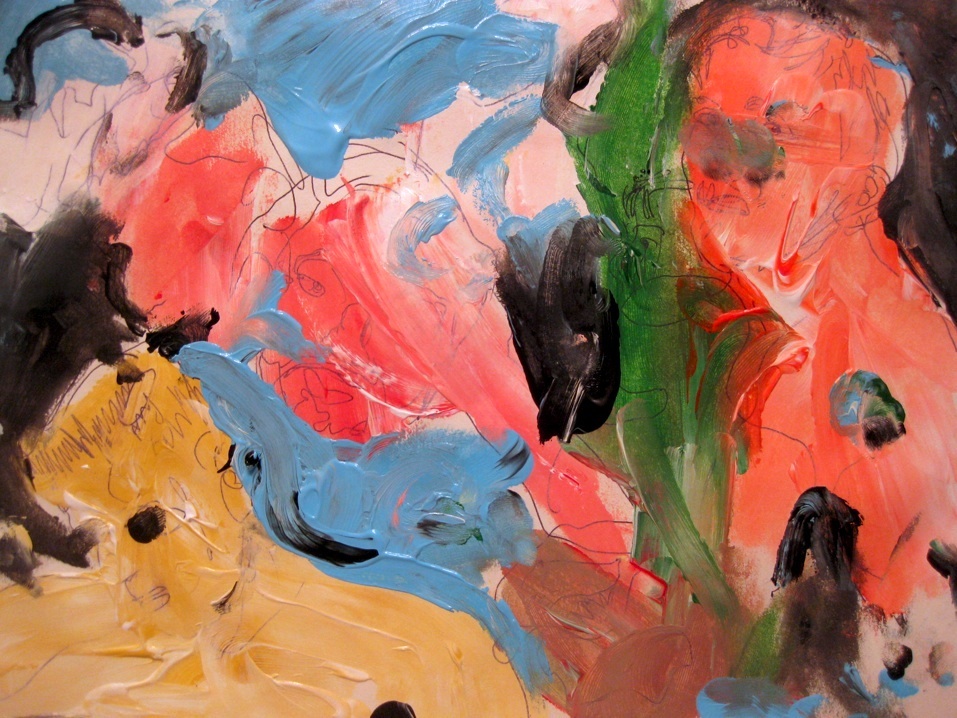It is possible I’ve written all I can
about her, my friend, who once saw
my coldness, young as we were, as
might. Wordless, slow,
I watched her reach the green apex,
our forest unfolding a bolder spring,
then nodded at her victory. She won
the race. I did not
care: poor at math, wasteful of time—
those lush arrogant clouds—, I grazed
lawns, wrote poems. It is possible
ours was a friendship
of convenience. Neighbors, two
daughters of immigrants, we found
each other circling cul-de-sacs, an
afternoon’s easy
drag, our bicycle wheels dulled by idle
lulling. What do I care now that she’s
dying or about to die? Dark-haired, grave-
eyed, she was almost
beautiful. What’s a fish without an eye?
FSHHH! A joke she’d tell past eighteen,
as if joking were the joke. Words to her
an affect of breath,
distractions apportioning the hour’s
tedious orbit. I don’t remember
laughing, or I did laugh because
I did love her
for giving me time to breathe,
to be and feel all that I was not
feeling – you know, that suburban
psychosis: “sad.”
I was a child so lost I froze
whenever she wept, posing like
pre-adolescent topiary, tireless,
another dud hedge
stalling on the lawn. Worse, I’d tell
the joke back to her—What’s a
fish?—forgetting the crucial ocular,
the self. My closet
hid a packed bag. I swore I’d run away,
then didn’t. I’d avoid phone calls, fib
my RSVP. I was busy, am busy, will always
be busy! Perhaps
this mirror can be comfort now, my face
vacant, wondering who she is to me,
more time wasted on the unknowable
sky, which is just
an image of the future. Fear lights
my eyes, and I blink, a self-enforced
detachment that self-soothes. I was
lonely, had no one
to sit on the bus or eat lunch with,
and even then knew I’d fail at
the most basic things. D+ in Human
Physiology, a first
marriage I didn’t intend, ordinary
confessions pouring out as soon as
my lips kissed a cold rim of gin:
I stole my sister’s
gold woolen capelet, I never loved
him. The truth is I learned nothing
from her kindness, and so confessing
now is folly, when
aging imposes new precision. Our
sons grow tall, our thoughts bleaker.
If the diagnosis surprised her, I’ll
never know, and that
might be the end of it, if any end
could be tolerable. Imaginable.
I have no right to this poem, this life
insufficient
with gratitude, the unceasing toll
of tides outside my mind’s window.
I have no right to see an end.
Outside the real
window a neighbor I’ve never spoken to
frees brambles of branches
knotted since winter from a rose shrub.
Though all’s fruitless,
unsung, the thaw began last week
and I can say with certainty today
it is spring. I cannot say what I’d say
to her today
if she rose out of bed, head shorn,
bone-stemmed, and acknowledged me.
Would acknowledgment be her
immensity or
mine? It’s work to gather the seasons,
to ask a question that finds the feeling
at the troubled core of thought. Tonight
I feel small
and not immense. Spring is dark like winter,
dark like children who’ve all summer traced
miles of asphalt with bare feet, bare arms,
bare insolent sun.
Again, I haven’t traveled far enough.
Spring is a stark garden, is rude and
weary, a sole crocus, is grass, raw
tonight, too soon done.








